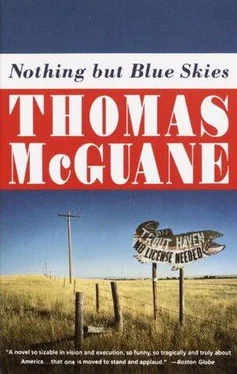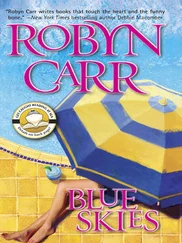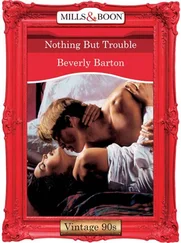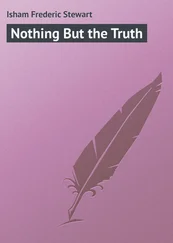In 1968, a now ancient time full of scathing situations, trying love but preferring lust and, for many, one meretricious scène à faire , the flushing of narcotics down the toilet, Frank was banished from the family business by his father. This involved a long autobiographical recitation in which his father told about his early years on the ranch, the formulaic (in Frank’s eyes) long walk to a poorly heated country school, the pain of being Catholic in a community of Norwegian Lutherans, the early success in getting calf weights up, the malt barley successes, the highest certifications and the prize ribbons, the sod farm successes, the nursery, the Ford dealership, the implement dealership and the four apartment buildings, including the one regularly demolished by the fraternity boys “and their concubines.” Frank’s father was a self-taught, almost bookish individual, and he wore his education on his sleeve.
Among the fraternity boys was Frank, the son of the landlord, who had graduated a year earlier but who was now “managing the building” for his family, hoping to make it another of the family’s successes. The occasion of his banishment was a theme party, the theme being Farm Life, a kind of witticism on Frank’s part involving hauling three tons of straw into the building and piling it higher than not only the furniture but the heads of the occupants. Barnyard animals, chiefly pigs, were turned loose in this lightless wilderness and the party began. It lasted two days. Tunnels quickly formed that led to the beer kegs and to small clearings where people could gather. There was a proscribed area for bodily functions, a circular clearing in the hay with dove gray shag carpet for a floor, and another for the operations of the stereo and its seemingly endless loop of the beloved Neil Young’s “Are you ready for the country, ’cause it’s time to go!”
The world of straw became damp and odorous with beer, marijuana, sperm, perfume and pig droppings. Frank would remember ever afterward the terror of crawling stoned, in his underwear, down a small side tunnel to meet headlong in the semi-darkness a bristling, frightened three-hundred-pound pig. Right after that, clutching a beer and a joint and hearing the approach of another pig, he withdrew into the straw alongside the tunnel to let the pig pass, watched it go by ridden by the most beautiful naked sorority girl he had ever seen, Janet Otergaard from Wolf Point, now vice president of the First National Bank. Frank crawled after her but fell behind a bit, and when he caught up she was already going off into the straw with Barry Danzig, who was home from Northwestern Law School. This disappointment had the effect of making Frank long for fresh air. He made his way toward the entrance, and crawling out of the straw in his underwear, a bleak and tarry roach hanging from one of his slack lips, he met his father.
Mr. Copenhaver continued to wear suspenders long after they had gone out of fashion. He wore wide ones with conspicuous brass hardware to remind people of his agricultural origins. Most people hadn’t gotten the news that farmers were as liable to be envy-driven crooks as anybody else, the stream of information having been interrupted by the Civil War; so, wearing wide suspenders was like wearing an “I Am Sincere” sign. Today, curving over the powerful chest of his father, they stood for all the nonsense he was not brooking. A bleary girl in a straw-flecked blue sweater emerged pulling the sweater down at the sides over her bare hips. She peered unwelcomingly at Frank’s father and said, “Who’s this one?”
“The owner of the building!” boomed Mr. Copenhaver. She dove back into the straw. Frank was now overpowered by fear of his father. He felt his drugged and drunken vagueness in muzzy contrast to his father’s forceful clarity next to him, a presence formed by a lifetime of unstinting forward movement, of farming, warfare and free-market capitalism as found in a small Montana city. Next to his father, Frank felt like a pudding. As against making a world, he was prepared to offer the quest for pussy and altered states — an edgeless generation, dedicated to escaping the self and inconsequential fornicating, dedicated to the idea of the Relationship and all-terrain shoes that didn’t lie to your feet. Frank’s fear was that his father would strike him. Worse, he said to get the people out, clean up the building and appear at his office in the morning.
That didn’t start out well either. He was exhausted from cleaning up the mess himself. His companions were unwilling to help until they had had a night’s sleep. He found himself shouting, on the verge of tears: “Is this friendship? You know my back is against the wall? I’m about to get my ass handed to me. I need you to help me!” We need sleep, they said. So, he cleaned the mess up himself, hauling twenty-seven loads in the back of his car out to the landfill and simply, hopelessly, releasing the pigs into the neighborhood. They belonged to the family of one of the fellows who hadn’t stayed to help. Frank found the most awful things on the floor: false teeth taped to the end of a stick, hot dogs and half-finished bags of miniature doughnuts dusted with powdered sugar, rotten panties, a Bible, a catcher’s chest protector. He showered, changed into a clean shirt, clean jeans and a corduroy sport jacket. Then, having been up all night, he headed for his father’s office. He drove up Assiniboine Avenue and then turned at College Street. His nerves were shattered by the sight of three of the pigs jogging up the center of Third Street, loosely glancing over their shoulders. Here and there, people stopped to watch these out-of-place animals.
He parked his car, an old blue Mercury with sarcastic tail fins and speckled bumpers, in front of his father’s office, a handsomely remodeled farmhouse on West Deadrock, and went in. He presented himself shakily to the secretary, the very Eileen who now worked for him, who waved him on with a gesture that suggested she knew all about people like Frank and his friends. And perhaps she did, he thought. It’s easy to detect motion when you’re frozen in position, an old hunter’s trick.
“Come in, Frank,” said his father evenly.
“Hi, Dad.”
His father stayed at his desk while Frank sank subdued into an upholstered chair placed in front of the desk, a chair so ill sprung that Frank, at six-one, was barely able to see over the front of his father’s desk. The view of his father’s head and neck rising from the horizontal line in front was reminiscent of a poorly lit documentary shot of a sea serpent and added to the state begun by Frank’s shattered condition.
Mr. Copenhaver made a steeple with his fingertips. The high color in his cheeks, the silver-and-sand hair combed straight across his forehead and the blue suit gave him an ecclesiastical look, and Frank felt a fleeting hope that this was no accident and Christian forgiveness lay just around the corner.
“Frank, you’re interested in so many things.” His father glanced down; Frank could see he had the desk drawer slightly open so that he could make out some notes he had made for this conversation.
“Yes, sir.”
“You like to hunt and fish.”
“Yes, sir.”
“You like the ladies. You like a high old time. You like to meet your buddies for a drink in the evening and you read our daily newspaper, indicating, I might have hoped, an interest in current events but probably only the ball scores. I rarely see you with anything uplifting in your hand bookwise and the few you’ve left around the place are the absolute utmost in prurience, illustrated with photographs for those who are unable to follow the very descriptive text. So far so good: at least it was confined between the covers of a book. There was a day in time when I had my own Tillie the Toiler comics and I am not here setting myself up to moralize about your condition. I have for a long time now, heaving a great sigh, accepted that I was the father of a drunken sports lecher and let it go at that. But when I gave you the opportunity to find some footing in the day-to-day world that would have implications for your livelihood many years down the road, you gave it the kind of disrespect I have to assume was directed at me. Last night, I felt personally smothered in straw and pig manure. That was your valentine to your father, Frank, thank you. And Frank, see how this flies: I’m not going to put up with it anymore. You’re not going to run that building anymore and my hope that you would one day manage the old home place is dead. I think your brother Mike is the man for that job.”
Читать дальше












